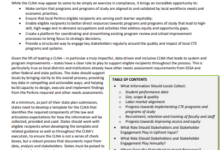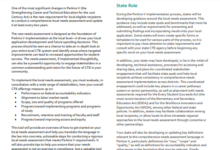In 2012, Middle Tennessee State University (MTSU) had a year-to-year retention rate of only 65 percent. Shortly after, MTSU made a renewed commitment to the success of its students, and transitioned from traditional advising to the use of better data in order to understand and serve students. In 2014, MTSU joined the Education Advisory Board’s Student Success Collaborative (SSC) and began to use the student success management system technology. This technology, one of several available on the market, helps with analysis of student data over time, as well as patterns in course order and combination. This analysis provides predictive scores so that faculty can identify the students who are at risk of dropping out and intervene. For example, once the software system identifies a student who is struggling, as indicated by failing a course or other milestone, an advisor is notified and will reach out to the student to engage in targeted support services.
The technology also identifies students who are not immediately at risk of leaving MTSU, but are predicted by data patterns to be at risk in the future. Advisors can then identify and work with these students so that they can achieve academic success.
MTSU is a 2015 recipient of a grant for Integrated Planning and Advising for Student Success (iPASS). This has allowed the institution to implement SSC technology, as well as respond to the data through the hire of 47 new advisors (which doubled the advising staff), increase free tutoring from 20 subjects to 200 subjects, redesign of 27 general education class, and monitor and report student progress on a weekly basis.
Policy in Action
After just one year, this tool assisted in increasing MTSU’s four-year graduation rate from 16 percent to 20 percent. By the fall of 2016, MTSU’s first-year retention rate grew to 76 percent, the highest retention rate MTSU has ever experienced. MTSU leadership underscored the pivotal role played by the faculty and advisors in leading to this success. The advisors embraced the new tools available and utilized this data in a way that has led to improved student outcomes.
Once MTSU implemented this new system and hired the additional advisors, the university formed multiple advising centers with different areas of focus- as data analysis deemed necessary. MTSU also used this new data to create new student support services, such as the peer-assisted supplemental instruction program. Staff used the data to identify which courses had high rates of low or failing grades, and established peer-led study and discussion meetings for enrolled students. On average, students who attend these sessions achieve a half to full grade higher than those who do not.
Related Links
- Education Advisory Board: MTSU Case Study
- Education Advisory Board: Student Success Collaboration
- Integrated Planning and Advising for Student Success: Middle Tennessee State University: Targeting Risk and Intervention






